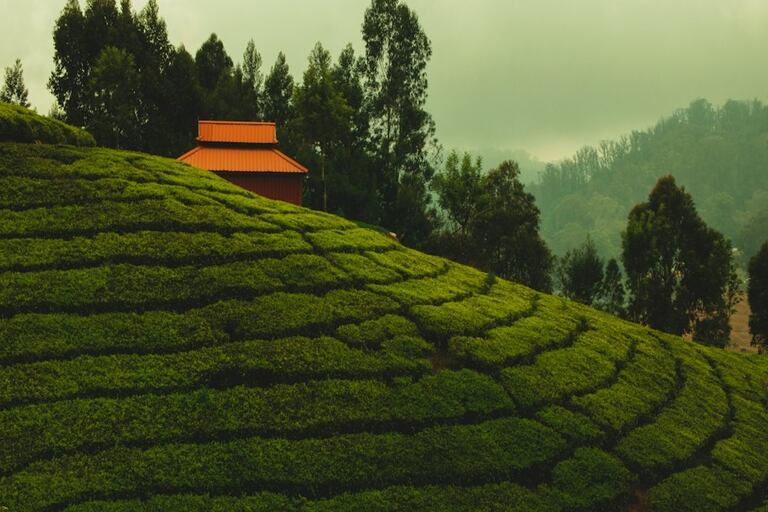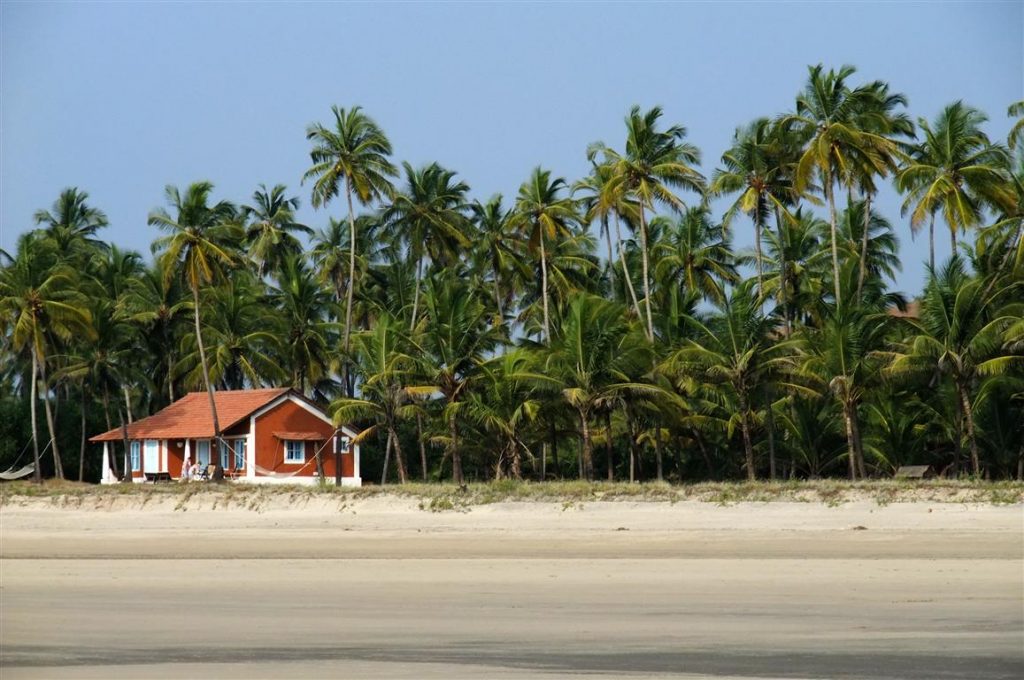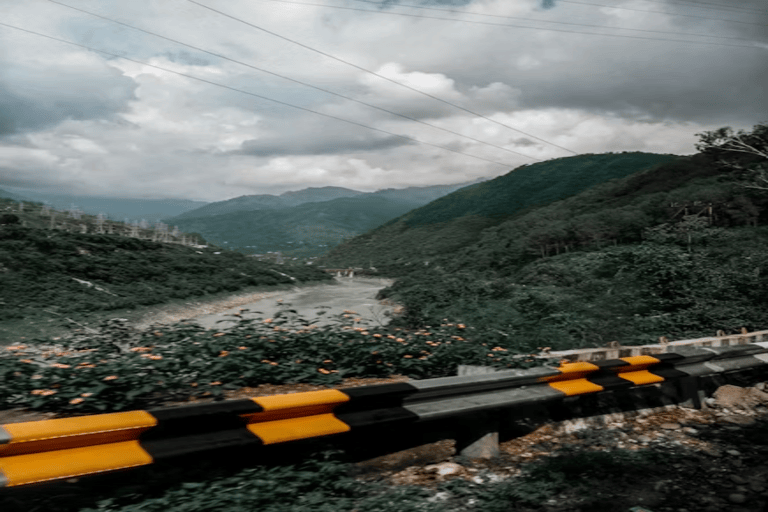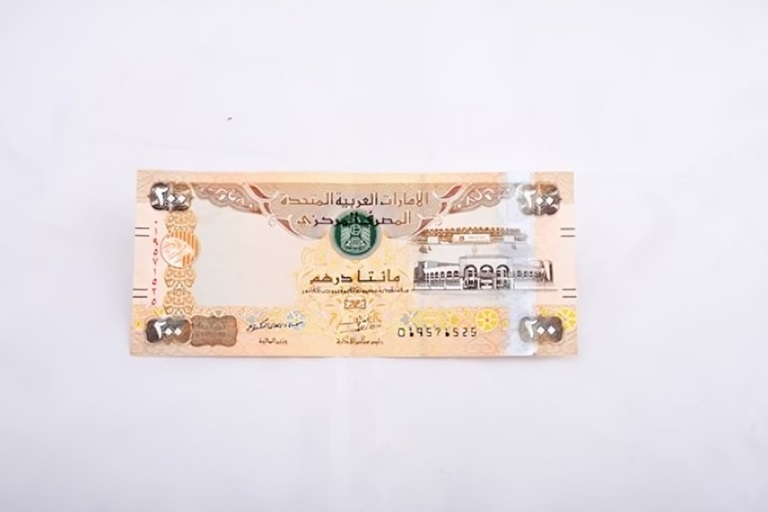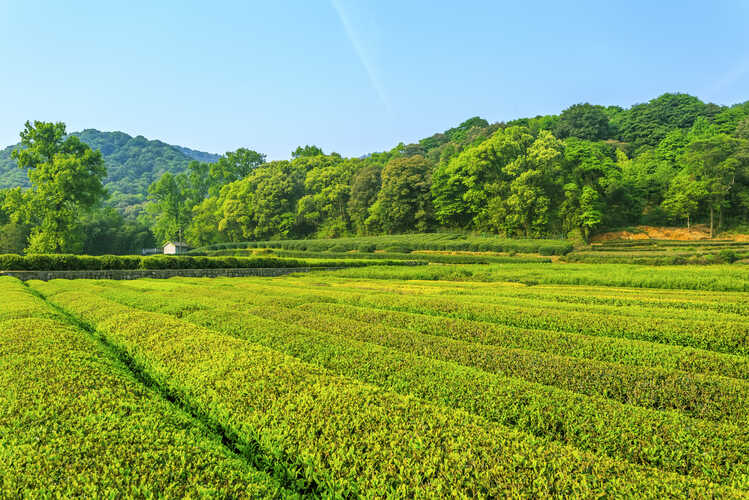
Tea Trail Adventures: Exploring the Tea Estates of Assam and Meghalaya
Table of contents
Nestled in northeastern India, the states of Assam and Meghalaya are renowned for their lush landscapes, rich cultural heritage, and, of course, their world-famous tea estates. Embarking on a tea trail adventure through these regions promises a journey of discovery, where you can immerse yourself in the art of tea cultivation, witness breathtaking scenery, and engage with local communities deeply connected to the tea industry.
In this comprehensive guide, we’ll delve into the fascinating world of Assam and Meghalaya’s tea estates, listing the popular tea estates to visit and offering practical tips for travelers seeking to experience the magic of tea trail adventures.
Meghalaya and Assam Tea Gardens
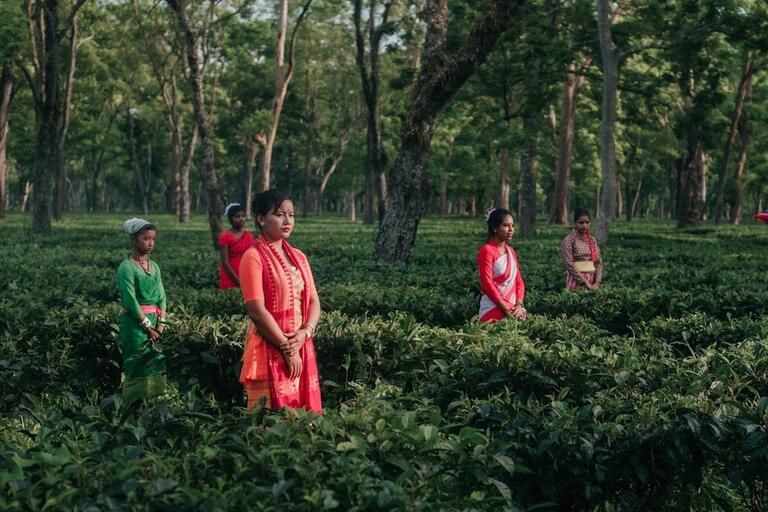
Meghalaya and Assam Tea Gardens
In the northeastern region of India, Meghalaya and Assam boast some of the most enchanting tea gardens in the world. Meghalaya, known as the “abode of clouds,” offers a picturesque setting for tea cultivation amidst misty landscapes and lush green hills. The tea estates here offer organic teas and stunning natural beauty.
Meanwhile, Assam, the largest tea-producing region globally, is renowned for its vast expanses of tea gardens along the Brahmaputra River. Assam tea estates showcase the rich heritage and premium quality teas that Assam is famous for. Whether exploring the serene tea estates of Meghalaya or the sprawling Assam tea plantations, visiting these regions promises a captivating journey through the heart of India’s tea culture.
Exploring Meghalaya and Assam Tea Estates
Embarking on tea trails through Meghalaya and Assam tea gardens offers you a fascinating journey into the heart of India’s revered tea culture. In Meghalaya, amid mist-laden hills and lush greenery, these trails lead to hidden tea plantations offering a blend of organic teas and breathtaking natural vistas. Meanwhile, Assam, famed as the world’s largest tea-producing region, boasts sprawling tea estates showcasing the rich landscape of tea cultivation.
Tea trails hold immense significance as they offer a unique opportunity to delve into tea cultivation’s rich cultural heritage and natural beauty. These trails provide insights into the intricate process of tea production, from plucking tender leaves to the final processing stages. By exploring Meghalaya and Assam tea estates, you gain a deeper understanding of the labour-intensive methods involved in cultivating and harvesting tea and the socio-economic impact on local communities.
Moreover, tea trails allow for the appreciation of the diverse landscapes where tea is grown, fostering a connection to the environment and promoting eco-tourism. Additionally, tea trails offer a chance to savour the flavours of freshly brewed teas, providing an immersive experience that heightens one’s appreciation for this beloved beverage. Tea trails play a vital role in preserving cultural traditions, supporting local economies, and promoting sustainable tourism practices.
Popular Meghalaya and Assam Tea Gardens
Here is a list of the best Meghalaya and Assam tea estates to visit in the northeast:
1. Halmari Tea Estate
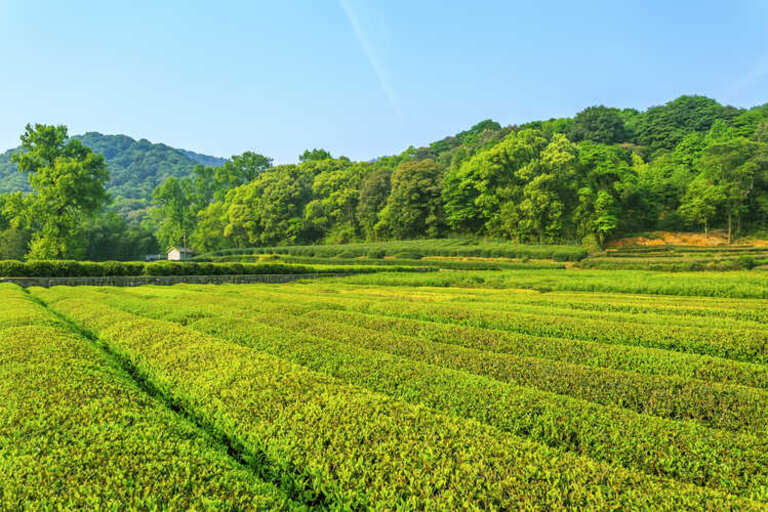
Halmari Tea Estate
Halmari Tea Estate is one of the best Assam tea estates, renowned for producing some of the finest orthodox Assam tea. Established in the late 19th century, Halmari boasts a rich history and a commitment to quality and sustainability. Guided tours of the estate provide visitors with insights into the meticulous craft of tea cultivation, from hand-plucking the tender tea leaves to the art of tea processing.
The estate’s sprawling tea gardens, bordered by the Brahmaputra River, offer a serene backdrop for exploring the tea-making process. With its dedication to excellence and heritage, Halmari Tea Estate continues to uphold Assam’s esteemed tea legacy, captivating tea enthusiasts worldwide with its premium-quality teas and scenic beauty. The estate is known to have some of the most experienced and knowledgeable specialists handling the tea process. Some popular varieties include CTC and orthodox teas. Make sure to visit this Assam tea plantation on your Assam tour packages.
Location: Khowang, Moranhat district, Dibrugarh, Assam 785669.
2. MEG Tea Estate
MEG Tea, born from the fertile lands of Meghalaya, emerged in 2014 under the Meghalaya Agriculture Department. Encouraged by the lush landscapes and favourable climate, it established its plantations and processing units in Umsning and Upper Shillong, swiftly becoming a leading supplier of black, green, and oolong teas from the region.
Cultivated at elevations exceeding 1,500 meters above sea level, MEG TEA benefits from the pristine, virgin lands of Meghalaya, employing traditional farming methods and organic practices to ensure premium quality. With a focus on low volume and high quality, MEG Tea is a certified organic tea produced in Meghalaya that you must check out when you are in Meghalaya.
Location: Tea Development Centre, Government of Meghalaya, Umsning, Meghalaya 793105.
Read More : Best Season to Visit Northeast India: Our Complete Guide
3. Mangalam Tea Estate
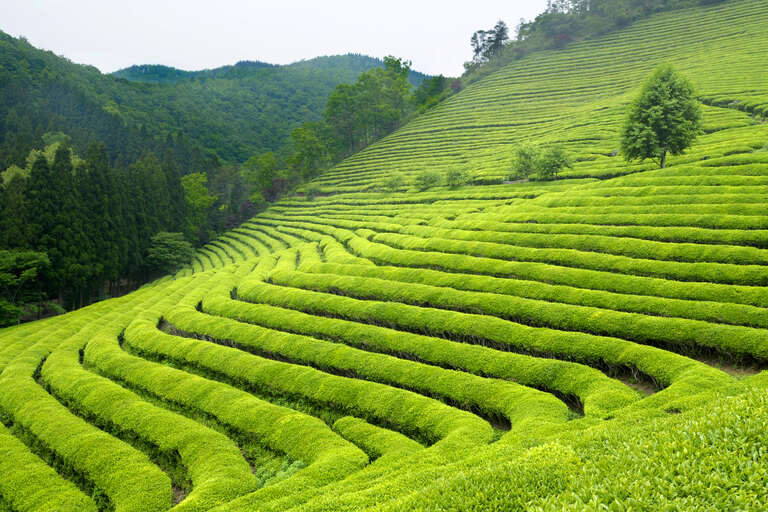
Mangalam Tea Estate
Nestled within the picturesque landscapes of Assam’s Sibsagar district lies the renowned Mangalam Tea Estate. This estate spans an impressive 118 hectares of lush greenery. For 70 years, the tea estate has been owned by Jay Shree Tea, a famous brand known for its premium tea. The tea bushes are meticulously planted in close proximity, creating a unique and distinctive pattern across the plantation.
Known for its exceptionally smooth teas, Mangalam Tea Estate has garnered widespread popularity among tea connoisseurs. The estate’s well-designed infrastructure ensures seamless operations, with strategically placed roads facilitating efficient access throughout the tea gardens. Renowned for its superior quality, both the Orthodox and CTC teas from Mangalam Tea Estate are quite popular. Notably, the estate’s Orthodox teas have gained acclaim in international markets, particularly in Germany, further enhancing its reputation for excellence in tea production.
Location: Towkok Grant No.2, Assam.
4. Corramore Tea Estate
Set amidst the scenic landscapes of Assam, the history of Corramore Tea Estate dates back to the 1860s. The estate was established by Robert Logan, who was originally from Scotland. For 120 years, this estate remained a family business until Williamson Tea took over. Spanning across an impressive 480 hectares, the best time to experience its beauty is from March to December. In 1993, the Corramore Tea Estate hit the news for producing a huge amount of tea.
To achieve this, they started using both modern and traditional methods. Their tea leaves are famous for their special smell and flavour, especially among tourists who come to Assam. One of the most popular Assam tea estates, you can enjoy stunning views of the Kaziranga mountain range here. You can indulge in sightseeing, tea tasting, and tea shopping, immersing yourself in the heritage and charm of the estate. Make sure to add the Corramore tea Estate to your list of best Assam tea estates to visit in the northeast.
Location: Khairabari Grant, Hatigarh, Darrang district, Assam 784524.
5. Amchong Tea Estate
Located in the picturesque Panbari Mouza of Assam’s Kamrup district, Amchong Estate is conveniently situated just a 20-minute drive from Guwahati city. Spanning an expansive 1782 acres of land, the estate has gained renown for its superior tea production within the region. Traditionally focused on CTC tea production, the estate expanded its offerings in 2015 to include Orthodox tea in response to evolving consumer preferences.
With an annual production capacity of 1,000,000 kilograms of tea, the estate has witnessed a remarkable increase in production over time, with its Orthodox tea garnering significant demand at auctions. Boasting a team of highly educated and experienced employees, Amchong Estate prioritises quality and customer satisfaction. It practices rigorous quality control measures throughout the tea production process.
Location: Jubai No.2, Panbari Mouza, Kamrup district, Assam 782401.
6. Monabari Tea Estate
Monabari Tea Garden, located in Assam’s Biswanath Chariali district, stands as the largest tea estate in Assam. It has earned widespread respect in the tea-growing community. McLeod Russel India Limited owns this estate, which has experienced remarkable growth and productivity over the years. Not only is it valuable for the company, but its vast expanse also offers stunning views, making it one of the best Assam tea gardens to visit.
Covering a sprawling area of 1367.38 hectares, Monabari Tea Estate is renowned for producing Reddish Bright Colour tea. Conveniently situated just a short distance from Biswanath Chariali town and approximately 252 kilometres from Guwahati city, it is divided into four distinct segments—Old Line, New Line, BehuPukri, and Lahori Jan. The tea estate also houses a hospital and factory. The best months to visit the Monabari Tea Estate are October and April, as the climate is comfortable and pleasant during this time.
Location: NH-52, Monabari, Biswanath, Assam, 784167.
7. Manohari Tea Estate
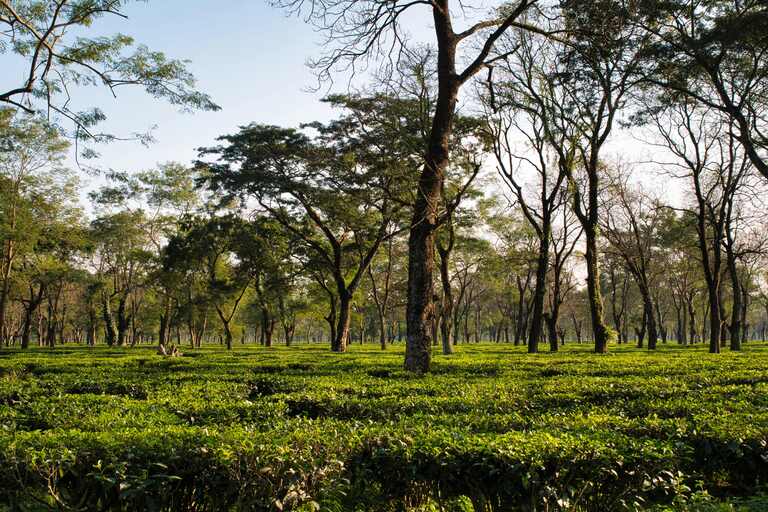
Lush green tea plantation with scattered trees.
Nestled in Lahoal along the border between India and Burma, the Manohari Tea Estate sits at an elevation of 390 feet above sea level, encompassing 1800 acres, with 1000 acres dedicated to lush tea plantations. This Assam tea plantation has been revered since the colonial era for its exceptional quality tea that has been preserved for generations. The estate has garnered attention for its groundbreaking tea auction sales, boosting the value of Assam’s tea industry.
Its exclusive tea varieties, like the Manohari Gold, have gained immense popularity in the fitness and health sector. Visitors seeking both exceptional flavour and scenic beauty must visit the Manohari Tea Estate for an immersive experience. Beyond tea appreciation, the estate offers a firsthand glimpse into the labour-intensive process of tea production, making it a must-visit destination for enthusiasts and curious travelers alike. Conveniently situated near Dibrugarh Airport, access to this captivating tea haven is effortless, ensuring an unforgettable experience amidst Assam’s verdant landscapes.
Location: Manohari Tea Estate, Nogaghuli 1/177 Orr, Assam 786012.
8. Ghograjan Tea Estate
The Ghograjan Tea Estate sprawls across 350 acres of pristine land in the picturesque landscape of the Dibrugarh district in Assam. Steeped in history, this estate, now under the stewardship of its fifth-generation proprietors, has flourished since its inception in the 1930s. Founded post-independence by Budhkaran Choukhany, the estate has consistently upheld a tradition of excellence, appointing top-tier planters to oversee its operations.
Embracing modernization, the estate has invested in research and development, fostering the well-being of the local Ghograjan community. Renowned for their superior quality, Ghograjan tea leaves undergo rigorous testing before being meticulously packed on-site. The Assam Breakfast Tea, Assam Golden Tips, Royal Masala Chai, and Vintage Earl Grey are notable among its offerings.
The plantation employs approximately 400 individuals and boasts well-organised infrastructure, including housing, a healthcare centre, and a primary school. Notably, about 75% of the workforce comprises women, making it a notable example of female-led businesses within the industry.
The plantation employs approximately 400 individuals and boasts well-organised infrastructure, including housing, a healthcare centre, and a primary school. Notably, about 75% of the workforce comprises women, making it a notable example of female-led businesses within the industry. These aspects collectively make the plantation an excellent destination to explore while visiting Assam.
Location: Ghograjan Tea Estate, P.O. Lahoal, Dibrugarh, Assam 786010.
9. Nonoi Tea Estate
Set amidst the verdant landscapes of Assam’s Nagaon district, the Nonoi Tea Estate offers a tranquil escape at 225 meters. The estate is just 80 years old, and it forms an integral part of the Chubwa Tea Garden. Nearby lies the renowned Nanoi waterfall, a captivating tourist attraction that lends its name to the tea estate.
Popular for its picturesque vistas and breathtaking scenery, it stands as one of the most beautiful Assam tea gardens to visit. Locally referred to as Rangamati, the Nonoi Tea Estate sprawls across approximately 960 hectares, artfully divided into three distinct sections – Old Salna, Nonoi, and Rungamutte. Beyond tea cultivation, the estate distinguishes itself with efforts to diversify its business ventures, including fisheries and Assam lemon cultivation.
Catering to both domestic and international markets, it produces a range of teas, from Orthodox to CTC. Committed to holistic development, the estate provides essential amenities such as hospitals, schools, and dispensaries while championing environmental conservation efforts.
Location: Nagaon district, Assam 782101, India.
Now that you’ve gone through the list of the top Meghalaya and Assam tea gardens, you’re ready to immerse yourself in these enchanting estates and savour the region’s authentic flavours. With guided tours providing insights into tea-making, you’ll embark on a journey rich in heritage and taste. So, whether you’re a tea enthusiast or an adventurous traveller, discovering these popular tea gardens is an essential experience.
Ready to begin your tea adventure? Book your Meghalaya and Assam tour packages with Thomas Cook today, and let us help you create unforgettable memories amidst the breathtaking landscapes of these tea-rich regions. Book now!
Table of contents
Trending blogs for you
 18002099100
18002099100

